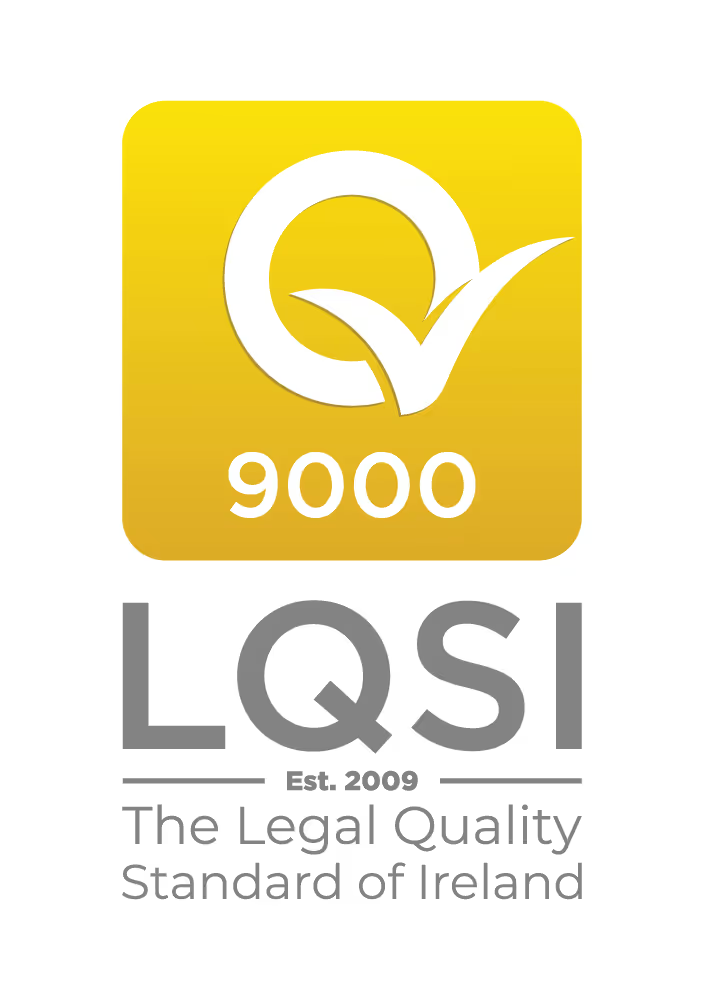As businesses are facing unprecedented times, the availability of governmental support is critical to support business over the coming weeks and months.We have set out below the details of the support being provided by the Irish government and its agencies and offices, as of 27th March 2020.
Financial Support
• A €200m Strategic Banking Corporation of Ireland (SBCI) COVID-19 Working Capital scheme for eligible businesses impacted by COVID-19. Loans of up to €1.5m will be available at reduced rates (maximum will be 4%), with up to the first €500,000 unsecured.
BCI COVID-19 Working Capital Scheme FAQs
• A €200m Package for Enterprise Supports including a Rescue and Restructuring Scheme available through Enterprise Ireland for vulnerable but viable firms that need to restructure or transform their business.
• The maximum COVID-19 loan available from MicroFinance Ireland will be increased from €25,000 to €50,000 as an immediate measure to specifically deal with exceptional circumstances that micro-enterprises (sole traders and firms with up to nine employees) are facing. The terms include a six months interest free and repayment free moratorium, with the loan to then be repaid over the remaining 30 months of the 36-month loan period. Loans are available at an interest rate of between 6.8% and 7.8%. Businesses can apply through their Local Enterprise Office or directly at microfinanceireland.ie. Eligibility criteria apply.
Microfinance Ireland COVID-19 Business Loan FAQs
• The Credit Guarantee Scheme will be available to COVID-19 impacted firms through the Pillar Banks. Loans of up to €1m will be available at terms of up to seven years.
Credit Guarantee Scheme for COVID-19 FAQs
Trading
• Local Enterprise Office can provide business continuity vouchers.
• Clients of Enterprise Ireland and Údarás na Gaeltachta will be able to avail of grants in the amount of €7,200 to access consultancy support to undertake immediate finance reviews.
Employment Support
• Employees of businesses that need to reduce hours or days worked can avail of the Department of Employment Affairs and Social Protection Short-time Work Support.
• The Department of Employment Affairs and Social Protection has introduced a Temporary Wage Subsidy Scheme for employers who have been significantly impacted by the crisis with a likely decrease in expected turnover for quarter 2, 2020 of 25 per cent. Revenue will accept cases where this may not come to pass at a later stage, once reasonably explained. An arrangement developed with Revenue, the Temporary Wage Subsidy Scheme will be available to employers who keep employees on the payroll throughout the COVID-19 pandemic. Employers will be able to claim 70 per cent of their employees’ net wage back (up to a maximum of €410) through the scheme. The scheme is confined to employees who were on the employer’s payroll at 29 February 2020 to 15 March 2020. The names of the employers who have applied to operate the scheme will be published. Revenue guidance on administration of the scheme can be found here.
• For those workers who have been laid off without pay, there is no need to visit an Intreo Centre. The DEASP has introduced a new support payment for the self-employed who have lost business and to those who have lost employment as a result of the COVID-19 pandemic, the COVID-19 Pandemic Unemployment Payment. This support pays a flat rate of €350 per week for 12 weeks. Employers must self-declare to Revenue that they have experienced significant negative economic disruption and self-employed workers who qualify will be paid through the COVID-19 Pandemic Unemployment Payment rather than through Revenue.
• The full range of Enterprise Ireland, IDA Ireland, Local Enterprise Office and LEOs COVID-19 Business Response grant supports will be available to firms to help with strategies to innovate, diversify markets and supply chains and to improve competitiveness.
• The Department of Employment Affairs and Social Protection and the Department of Business, Enterprise and Innovation will provide a joint First Responder support service through the Intreo Offices and development agencies, Enterprise Ireland and IDA Ireland in each region to provide tailored supports for impacted firms, with objective of avoiding mass lay-offs and buying time for firms to work through the short-term disruptions.
• A Finance in Focus grant of €7,200 will be available to Enterprise Ireland and Údarás na Gaeltachta clients that want to access consultancy support to undertake immediate finance reviews.
• In addition to their current range of business supports to microenterprises, LEOs can also provide business continuity vouchers from €2,500 to assist in preparing any business continuity issues that arise in the current challenging environment. Visit LEOs COVID-19 Business Response for further details.
• Enterprise Ireland has a number of supports available to help businesses mitigate the impact of Covid-19. Their COVID-19 Business Response Plan outlines the COVID-19 supports available.
• The Department of Health has prepared COVID-19 guidance for supply chain workers.
Statutory Obligations
• CRO statutory filing deadlines have been extended, including annual returns due to be filed between now and up to 30th of June 2020 will be deemed to have been filed on time if all elements of the annual return are completed and filed by 30th of June 2020.
Revenue Commissioners
• Revenue has also posted advice for businesses experiencing trading difficulties as a result of COVID-19. This includes information on tax returns, the application of late payment interest, debt enforcement, tax clearance and customs.
• Application of interest on late payment is suspended for January/February VAT and both February and March PAYE (Employers) liabilities.
• All debt enforcement activity is suspended until further notice.
• Current tax clearance status will remain in place for all businesses over the coming months.
• Review of the Relevant Contract Tax rate for subcontractors scheduled to take place in March 2020 is suspended.
• Revenue’s administration of the Temporary Wage Subsidy Scheme will initially be determined, largely on the basis of self-assessment and declaration by the employer concerned, combined with a risk focused follow up verification by Revenue. The critical requirement is to be able to show significant negative economic disruption due to COVID-19 and in many cases this will be an obvious disruption. Revenue is open to considering relevant evidence as a reasonable demonstration of eligibility for the scheme stating the following proofs as illustrations rather than an exhaustive list:
• Copies of documentation submitted to a financial institution as part of negotiation of forbearance measures with the financial institution.
• Evidence of reliance on the Government Credit Guarantee Scheme or overdraft facilities or other borrowings for capital purposes.
• For start-up businesses, evidence of a decline in investment by at least 25% arising from the COVID-19 crisis will be considered.
• If for some reason the decline in turnover was less than 25% the business should retain documentation supporting its rationale for believing that it would suffer such a decline.
• Copies of notifications or communications to employees or Trade Unions or staff representative bodies of salary/wage cuts implemented as a direct result of COVID-19.
• Copies of documentation that show that any cash reserves in the business that are required to fund debt that is equal or greater than the reserve amount.
• Revenue has announced that employers that have been hit by a significant decline in business but has strong cash reserves are not required to fund debt and will still qualify for the Temporary Wage Subsidy Scheme but the Government would expect the employer to continue to pay a significant proportion of their employees’ wages.
• Revenue does not consider that any employer will need to seek professional advice or assistance, advising they will adopt a reasonable, fair and pragmatic approach to considering whether the criteria have been met for the Temporary Wage Subsidy Scheme. Revenue’s guidance on qualifying employers can be found here.
Commercial Rates
• The Government has agreed with local authorities that they defer rates payments from the impacted businesses for three months. This measure will be implemented by each local authority in its own area.
Banks
• All banks have announced they will offer flexibility to their customers in terms of payment holidays or provision of emergency working capital facilities. The trend appears to be toward 3 month payment deferrals.
Conclusion
If you have any queries or if you would like to discuss the content in further detail, our team of experienced professionals would be happy to assist.
For other relevant information, including contact details of the relevant team members, please see below:
This note is for general information purposes Legal advice must be obtained for all individual circumstances. While every effort has been made to ensure the accuracy of this note, no liability is accepted by the author or Flynn O’Driscoll for any inaccuracies.






